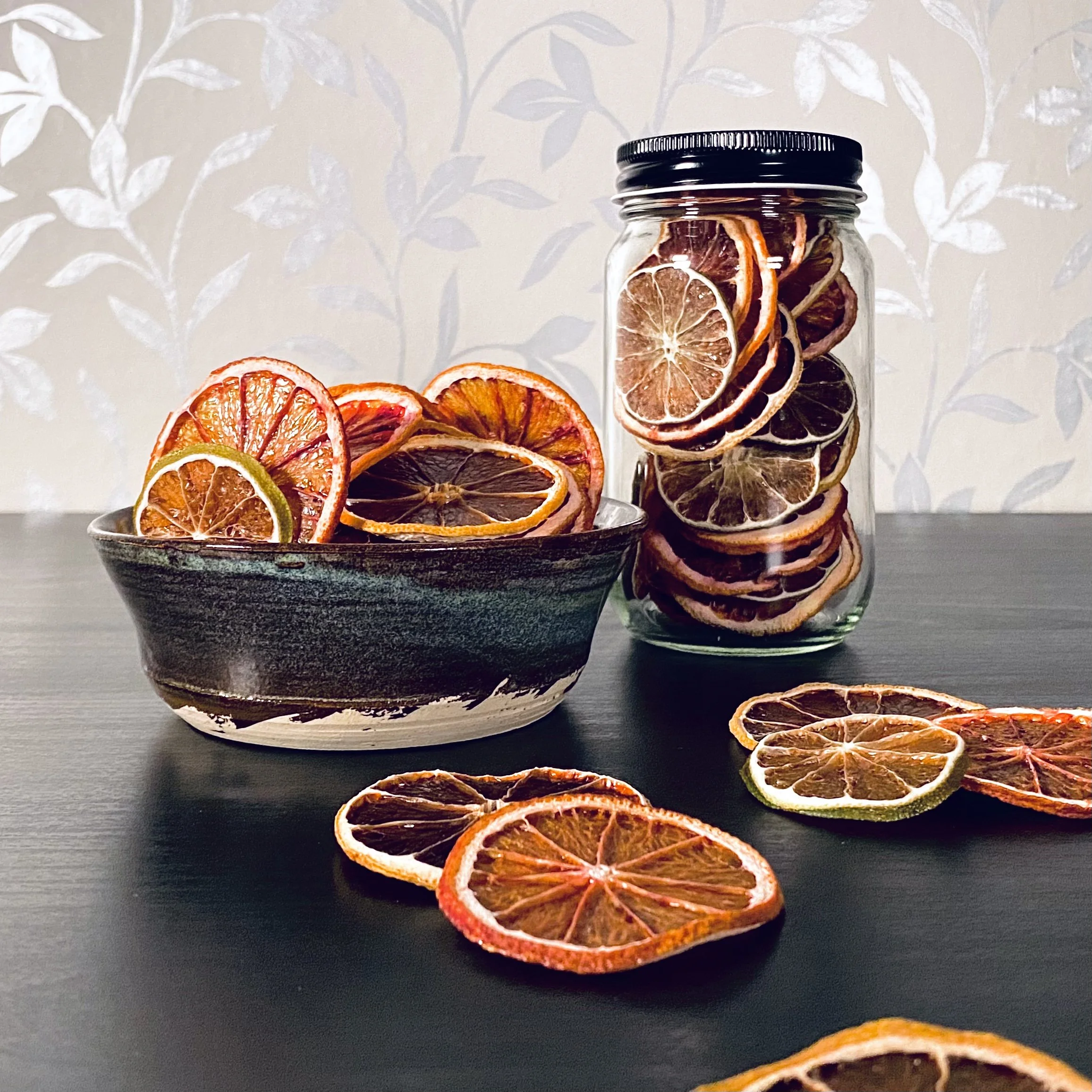Make Dehydrated Citrus Wheels
One of my favorite non-functional garnishes to use when making cocktails at home is dehydrated citrus wheels. As elevated as they may appear, dehydrated citrus wheels are deceptively simple to DIY even without special kitchen equipment; all you need is a knife, cutting board, baking sheet(s), wire rack(s), and access to an oven. Even though this process is entirely manageable from start to finish, it does take a considerable amount of time and patience to do it properly.
When preparing your citrus, it is important to be precise and consistent with the thickness of your slices. Ultimately, you should be aiming for them to be about an eighth of an inch thick; essentially, the thinner they are, the quicker they will dry… more on that later. Unless you are only slicing a few lemons and limes, this process can become rather cumbersome using the basic tools. For safety-sake, I highly recommend sticking to the tools and equipment with which you are comfortable and familiar. However, depending on the size of the batch, using an electric meat slicer or even a mandolin will help speed up the process significantly and help provide overall uniformity and consistency to the citrus wheels.
The best approach when using an oven to dehydrate citrus wheels is to use a very low heat over a long period of time. Depending on the variety of citrus you are slicing (such as oranges, lemons, limes), I recommend grouping similar sized wheels together on the same sheet — this will streamline the process if cook times differ. A convection oven can save you quite a bit of time. If you’ve never baked anything with this feature before, convection baking utilizes a fan to circulate the hot air around the oven; it’s efficiency tends to be less influenced by the size of the wheels (not to confuse thickness) than compared to standard baking.
Convection Bake at 175 degrees Fahrenheit* for approximately 1.5 hours for limes, lemons, and oranges (within reason) flipping the citrus over halfway through. OR
Bake at 175 degrees Fahrenheit* for approximately 3 hours for limes and lemons, and approximately 4 hours for oranges flipping the citrus over halfway through.
After baking, press them with a paper towel; if moisture is detected, simply return them to the oven. Depending on how well you dehydrated the citrus wheels, they can last for months (potentially years) if stored properly in an airtight container kept in a cool, dark place.
Like any other non-functional garnish, the dehydrated citrus wheel does have a time and place; there are plenty instances a freshly sliced citrus wheel can benefit the experience of the cocktail itself. Not to mention the more sparing with using this type of garnish, the more it will stand out when you do use it.
TIP(S):
Bake at the lowest temperature possible — all ovens are different. Depending upon the temperature you use, adjust the bake time in order to avoid cooking your citrus through.


